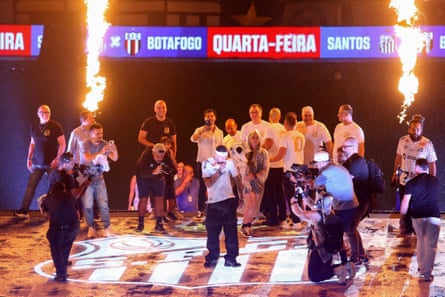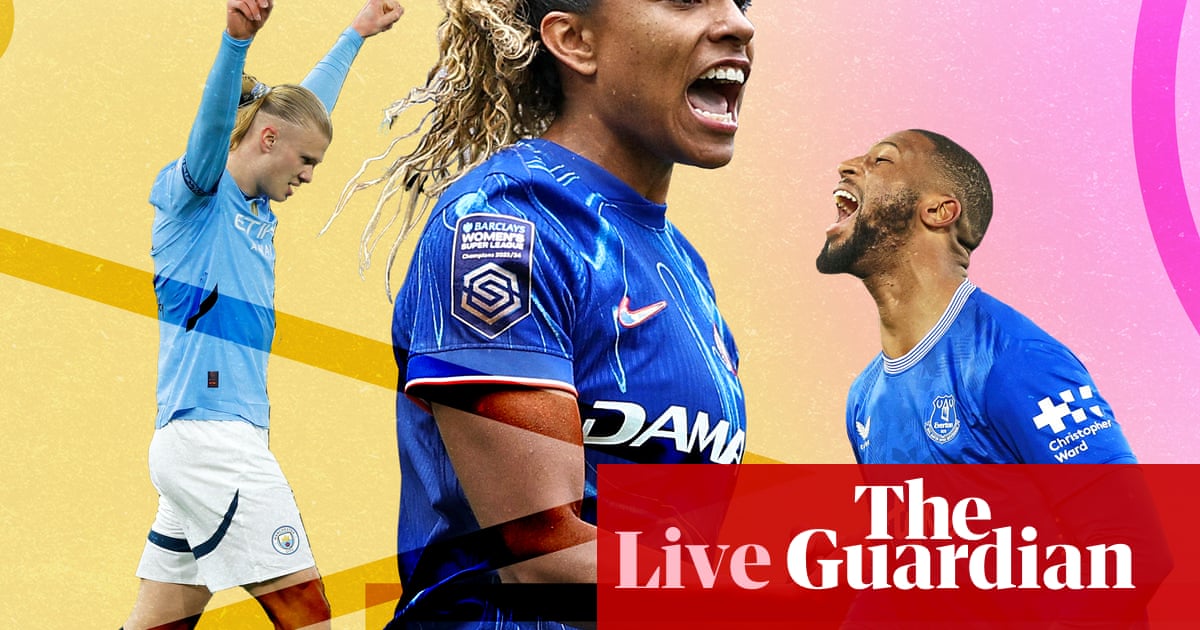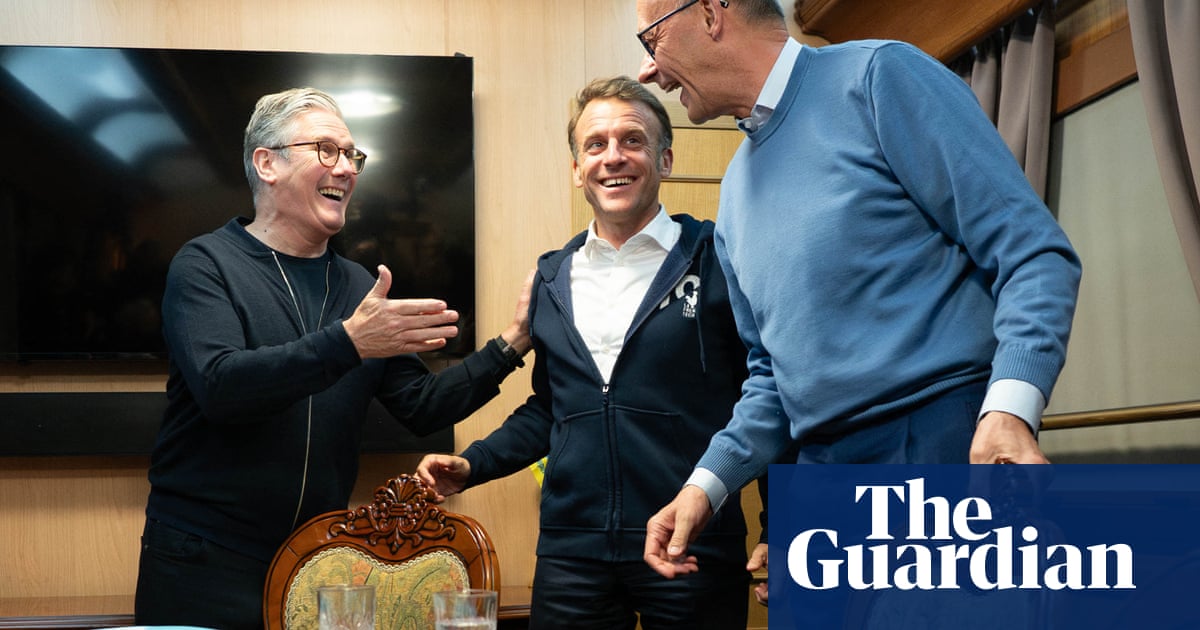Never go back, but sometimes going back is all that remains. Just 18 months after he joined Al-Hilal, Neymar and the Saudi club have agreed to terminate his contract, allowing him to return to Brazil and rejoin Santos. Al-Hilal paid £77m to sign Neymar from Paris Saint-Germain on a salary of £2.5m a week. He will be paid 85% of that for the remainder of this season, meaning he cost the club £322m for seven appearances, three assists and one goal. Like so much of Neymar’s career, it all seems such a dreadful waste.
His is a story almost designed to highlight the iniquities of the modern game, from the impossible pressures placed on young players to the curse of celebrity and financial excess. Neymar’s great misfortune was to emerge just after Lionel Messi. Argentina had seemingly found a second Diego Maradona, so Brazil needed a second Pelé. When, in June 2011, the 19-year-old Neymar scored the opening goal in the final as Santos won the Copa Libertadores for the first time since Pelé had inspired them to the trophy in 1963, it seemed they had found him. But, of course, nobody can live with such comparisons and so Neymar remained always a prisoner of his potential.
Neymar’s status as the great Brazilian hope meant he was indulged. There had been an incident in 2010 when, a week after missing a penalty in the final of the Copa do Brasil (which Santos won), Neymar was brought down in the box in a league game. His coach, Dorival Júnior, insisted somebody else should take the penalty, at which Neymar threw such a tantrum that he had to be placated by the linesman. He then turned his back on the penalty and rowed with his captain. But when Dorival called for him to be suspended for two weeks, he was sacked by the board.
Perhaps even more damaging was the way referees protected him. It may only have been subconscious but to see Neymar at the Copa América, a few weeks after his Libertadores success, was to see a player who had no way of processing officials who didn’t instinctively give him every decision.
The gnarled defenders of Venezuela and Paraguay set to work and Brazil drew two of their three group games. When they were eliminated in the quarter-final, Neymar was so ineffective he was withdrawn in the 80th minute. “It’s always me, me, me with him,” the former midfielder Carlos Casagrande said on O Globo’s coverage. “He’s forgotten or maybe he never knew that football is a collective activity.” Neymar-centricity, the whole game becoming his psychodrama, would become a familiar feature of Brazil at major tournaments.
When he was 21, Neymar left Brazil for Barcelona. It wasn’t his fault that Spanish tax authorities discovered that the fee was not €57.1m as originally reported but €86.2m, €45m of which went directly to his parents, but it somehow felt characteristic of the greed at the highest levels of the game. The scandal led to the resignation of Sandro Rosell as the Barcelona president and his replacement by Josep Maria Bartomeu, under whom the club’s finances deteriorated, precipitating the current crisis.

At first Neymar struggled to adapt to the pace and physicality of the European game, and he scored just nine goals as Barcelona won nothing in his first season. That only increased the pressure on him at the 2014 World Cup in Brazil. Although there was widespread sympathy when he fractured a vertebra in the quarter-final, his petulance had irritated many while the general hysteria that surrounded his injury was indicative of the emotionally fraught world elite players have to navigate.
The following season was his best as, with Messi and Luis Suárez, he won a treble, scoring the last goal in the Champions League final. But within a couple of weeks of that victory over Juventus in Berlin, he faced Colombia again in the Copa América, reacted stupidly to predictable provocation, was sent off for a backwards head-butt and then remonstrated so vociferously he ended up with a four-game ban.
International tournaments were never kind to him, although he did help Brazil end their slightly baffling yearning for Olympic gold in Rio in 2016 when most of the continent’s elite were playing in the Copa América Centenario. The World Cups of 2018 and 2022 brought quarter-final exits; in both tournaments Neymar flickered but ultimately frustrated.
His defining move, though, was his 2017 transfer to Paris Saint-Germain for €222m, more than doubling the previous world record, not only delivering for their Qatari owners a talented player but also making a show of their economic might while inflating the market, pushing up prices to a level it was very difficult for clubs without enormously wealthy state-backers to match. The collateral damage for football was vast and cemented Neymar’s position as 21st-century football’s Zelig, somehow always there as the game took another lurch into sordid absurdity.
after newsletter promotion
PSG brought French honours but never European success or the Ballon d’Or he craved. It all felt pointless, a player operating below his level, the futility exacerbated by the fact he was so often injured when the big Champions League games against tough opponents came around.

Injuries, in the end, are what have ruined his time in Saudi Arabia, but at some point in Paris, he also seemed to lose any sense of joy. Walking out of the stadium in Kazan after that World Cup defeat to Belgium in 2018, I passed between the marsh and the car park and saw, silhouetted against the breaking dawn, Neymar standing, head bowed, by the team bus. It was a curiously intimate moment, his sadness, his awareness of the expectation upon him, his crushing disappointment palpable.
Neymar has reportedly taken a 99% pay cut to return to Santos (easier to do, of course, when you’re still getting £2.125m a week from the Saudi club you’ve just left). Hopefully that is a sign of somebody reassessing his priorities and remembering that once he played not for money or preferment or accolades, but because he enjoyed it. In our end is our beginning – but it is a very different Neymar, older, less optimistic, chewed up by football, who returns.

 3 months ago
51
3 months ago
51













































